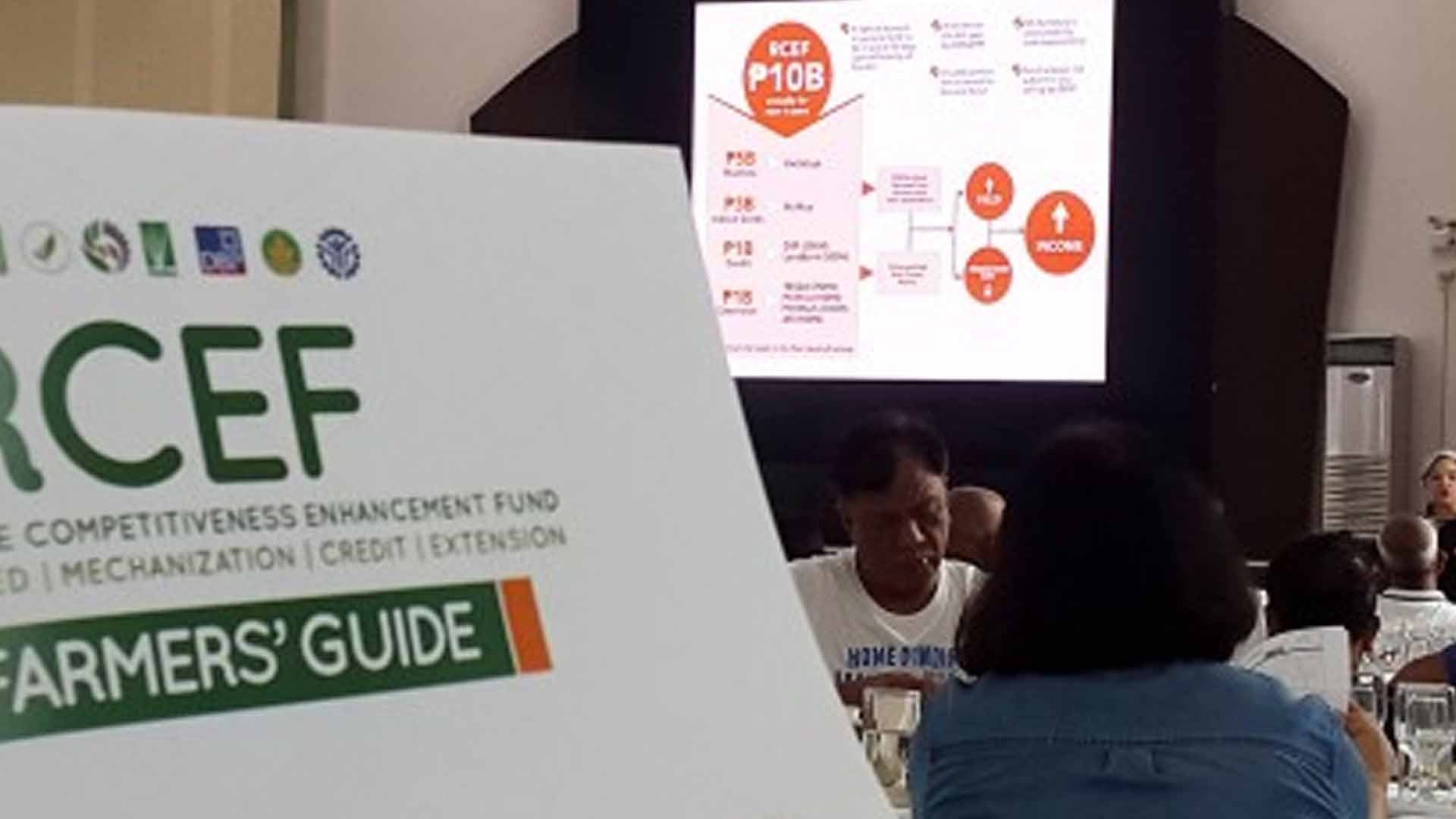At least 35,000 farmers in this province are seen to benefit from the Rice Competitiveness Enhancement Fund (RCEF).
Veronica Concepcion V. Esguerra, center director of the Agricultural Training Institute (ATI) of the Department of Agriculture (DA) 3 (Central Luzon), said on Friday that an agriculture extension workers’ summit, which was jointly organized by the DA and the Provincial Agriculture Office, was held Wednesday to explain to the farmers and other stakeholders how the RCEF would benefit them.
She said that RCEF funding was ready.
“These (are for the) distribution of farm machinery and crops, distribution of inbred seeds, broader credit, and agricultural extensions, such as training,” Esguerra said.
To avail of additional machinery, she said it is necessary for farmers to be members of a registered cooperative and association.
According to Esguerra, PHP5 billion has been allocated from the RCEF for the Philippine Center for Postharvest Development and Mechanization (PhilMech) to carry out the machinery program.
On the other hand, she said the free inbred seeds will be distributed by the Philippine Rice Research Institute (PhilRice) starting in the summer of 2020.
For broader loans, she said that PHP500 million has been allocated to the Land Bank of the Philippines (LBP) and Development Bank of the Philippines (DBP) from the RCEF.
“This is to cover up to ninety percent of the total cost of planting the palay,” Esguerra said.
Agricultural extension focuses on various training and empowerment for farmers, she said.
Of the PHP1 billion allocated from the RCEF for agricultural extension, she said that PHP700 million is for the Technical Education and Skills Development Authority (TESDA), PhilMech, PhilRice, and ATI.
“ATI has PHP100 million (for) training courses,” she added.
Provincial agriculturist Gloria Carillo said the Provincial Agriculture Office (PAO), and city and municipal agriculture offices will play a major role to hasten the availment of benefits by the farmers from RCEF.
“This is to ensure that every farmer beneficiary is enrolled in the Registry System for Basic Sectors in Agriculture (RSBSA). It is a requirement to benefit from the programs provided to palay farmers from the RCEF,” Carillo said.
Under Republic Act 11203 or the Rice Tariffication Law, eligible RCEF beneficiaries include farmers, farmworkers, and their dependents who are listed in the RSBSA — an electronic database containing basic information of farmers and fisherfolk, and members of DA-accredited farmers’ groups, such as multipurpose cooperatives, irrigators’ associations, and people’s organizations.
Farmers who are already enlisted in the DA-updated RSBSA will be prioritized.
“The program does not only aim to reduce the cost of production and increase farmers’ yields, but it also intends to strengthen FOs (farmers’ organizations) through agro-enterprise and collective activities,” she added.
Created through Republic Act 11203, the RCEF is a new government program that aims to help farmers through a PHP10-billion fund covering the seed, machine, credit, and extension support to improve the competitiveness of the Filipino rice farmers. (PNA)







